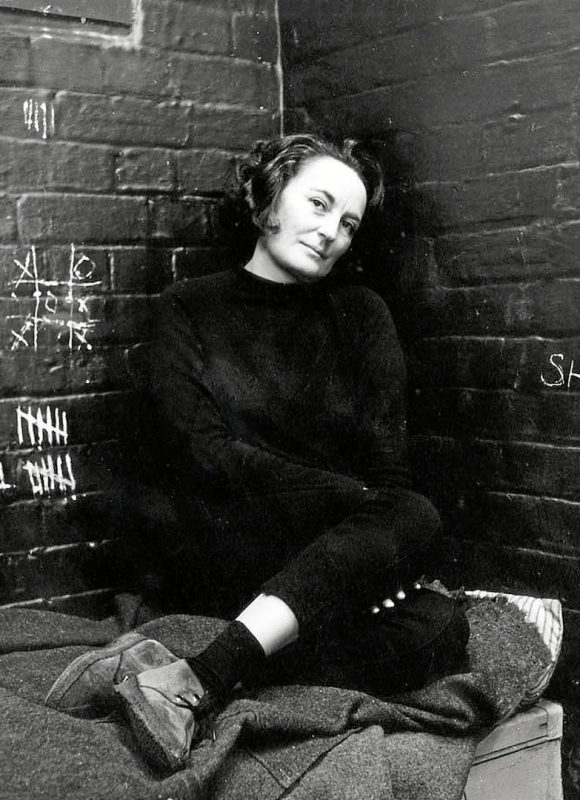PIONEER
Ruth First

Journalist | Human Rights Activist
Born: 4 May 1925 Died: 17 August 1982
“'I count myself an African,'and there is no cause I hold dearer.”
Who is
Ruth First?
An anti-apartheid journalist and activist, assassinated by the Security Police.
Professions
and Roles
Journalist, author, academic and activist.
Best Known For
Her work as a journalist and activist against oppression, and her death via letter bomb sent by the Security Police in 1982.
Life highlights
- First studied social sciences at the University of the Witwatersrand from 1942 to 1946. She was one of the founding members of the Federation of Progressive Students, secretary to the Young Communist League, and a member of the Progressive Youth Council and briefly the Johannesburg Communist Party of South Africa.
- She began work at the Johannesburg City Council after her studies, but soon quit because she objected to the council’s actions.
- First worked as an editor for a left-wing newspaper and exposed injustices, reporting on terrible labour conditions, the migrant labour system, and civil disobedience campaigns, among other things. She supported a wide range of activism, at home and abroad, and documented what she saw: from the 1946 mineworker’s strike and the Indian Passive Resistance campaign to travelling to China, the USSR, and elsewhere in Africa.
- First was a member of the underground South African Communist Party and a Marxist. She married fellow activist, communist, and organiser, Joe Slovo in 1949, and held multiracial political meetings at their home.
- First helped to found the Congress of Democrats (CoD) in 1953, and was part of drafting the Freedom Charter despite being banned and therefore unable to attend meetings. She was arrested, along with Slovo, in 1956 and charged in the Treason Trial, before being acquitted in 1961.
- First fled to Swaziland with her children in the state of emergency after Sharpeville in 1960, before returning to South Africa to work as an editor. She was arrested in 1963 and detained in solitary confinement for 90 days before being released, and immediately rearrested for another 27 days. She fled to Britain with her children to join her husband after she was released.
- First continued her anti-apartheid activism as well as her editorial work in Britain, including working on books by other political leaders and prisoners. She lectured on the sociology of underdevelopment at Durham University, England from 1973.
- She was appointed Professor and Research Director of the Centre for African Studies at the Eduardo Mondlane University in Maputo, Mozambique, where she wrote about the lives of migrant labourers.
- First was killed there by a letter bomb in 1982, widely believed to have been sent by the South African Security Police.
“At the Native Commissioner’s Court in the suburb of Fordsburg, hundreds of Africans are charged every day with pass offences. Only a handful manage to evade conviction, which means prison or hard labour on the farms, because most cannot pay their fines … The prisoners, none of whom have yet appeared before the court, let alone been found guilty, are told about the attractions of work on farms. For over an hour they hear about ‘free quarters, free clothes, and food.’ They are offered a six-month contract at the rate of £2 to £2 10 shillings a month. If they accept the work, they are told, the charges against them will be withdrawn. A further bait is the belief that when they have finished their contracts they will be allowed six days in the city to find work and become registered.”
– Ruth First, 1949
IN THE WORDS OF OTHERS
“We can hardly believe she is dead, for we remember her sharpness of intellect, her trenchant comments at our meetings, her dedication to constructing a relevant political theory and practice, and the warmth and humour of her personal relationships with us. It’s a terrible blow, one from which those who knew Ruth and worked with her in South Africa, in anti-apartheid work, on the Review, and recently in Mozambique, will find it hard to ever recover”.
– Fellow editors at the Review of African Political Economy, 1982
“I remember Ruth as elegant, forceful, efficient, and often impatient. Ruth’s remarkable body of writing—from investigative journalism to memoir to political and literary analysis—was driven both by her political commitments and by her frank curiosity about people and the worlds they inhabited, and was characterised by the clarity of her prose, her rigorous research, her careful use of the narrative form, and her interest in addressing the widest possible audience.”
– Gavin Williams, Emeritus Fellow of St Peter’s College, Oxford, 2019
First, R (1 September 1949), ‘Slave Market in Johannesburg’, Daily Worker, https://www.ruthfirstpapers.org.uk/content/471
Williams, G (17 August 2019), ‘Long life Ruth First’, Africa is a Country, https://africasacountry.com/2019/08/long-live-ruth-first
